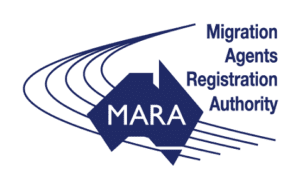The Canada’s Intra-Company Transfer (ICT) programme is one of the corporate immigration channels available under the Canadian immigration framework for foreign business owners wishing to grow their operations in Canada. Through the ICT pathway, this track of the International Mobility Programme enables qualified foreign business owners to relocate their activities, receive a work permit, and apply for permanent residency (PR). If you are one, we highly recommend that you keep reading. Understanding ICT Program Under Canada’s intra-company transfer programme, owners, operators, investors, functional managers, and employees with specialised industry expertise stand to gain from luring international companies to extend their operations. Successful foreign business owners can apply for the ICT WP to grow their companies in Canada, but inorder to be given a work permit, they must fulfil other requirements like proving ownership and creating economic value in Canada. Requirements From The Applicant A Canadian home firm requires its applicants to meet certain requirements in order to be considered. These include, working for the company for a minimum of 12 months, having Canadian activities that employ Canadians, and being associated with the Canadian company as a parent, subsidiary, or affiliate. Immigration authorities will conduct due diligence to ensure that a foreign company expanding into Canada for the first time has a solid business plan, is profitable, creates jobs, and is big enough to need an executive or manager. Businesses that are introducing ICT applications for the first time in Canada need to demonstrate their financial stability and potential for success, which includes recruiting local staff. You must also ensure that you meet the requirements for ICT applications and can grow successfully in the nation by presenting a compelling business case and supporting the choice to expand. Step To Apply For The Visa In order to apply for ICT visa Canada immigration programme, applicants must fulfil the necessary requirements. Such as gathering substantial proof, preparing a compelling case for Canadian immigration officials, justifying their eligibility and need for a stay in Canada. If this is your first ICT application, you should follow the following steps: Register your firm in Canada if it is a parent, subsidiary, or associate of your home company. Make a business plan that outlines your planned course of action, your market study of Canada, and your approach to running a profitable enterprise. Make sure to include your recruiting plan and cash flow projections for a minimum of two to three years, as per industry standards. Assemble the required documents (bank statements, investment fund papers, articles of business, etc.) and prepare your work permit application. Submit your work permit application, then watch for the result. The nationality of the applicant affects the application procedure for an ICT Work Permit. Canada’s more lenient immigration regulations are advantageous to certain nations. Here, the catch is that you may apply for an ICT Work Permit at the port of entry if you are from a country where visas are not required. Visa Validity ICT work permits typically have a two-year total validity duration with a one-year beginning period. A three-year work permit is preferable for non-citizens; it can be extended to five years for knowledge workers with specialist training and seven years for managers and executives. However, only newly established Canadian enterprises may receive one-year permits from immigration authorities. Because of free trade agreements with Canada, nationals of visa-exempt countries and US residents may be eligible for a three-year ICT work permit. Eligibility Requirement for ICT Visa The eligibility for an ICT work visa varies based on the type of employer, including employees, established businesses, and start-ups. In order to be eligible to apply, workers must be employed by a multinational corporation based outside of Canada that is relocating its staff there. Or they should be transferred to a Canadian business that serves as the parent company, affiliate, subsidiary, or branch of their employer abroad. Candidates must fulfil the conditions for temporary entrance and have worked full-time in a comparable capacity for at least one year straight during the preceding three years in order to be eligible. The “one continuous year” employment requirement and full-time employment, however, might not apply in some situations, such as part-time employment for a global firm with offices abroad. It is possible for Immigration, Refugees, and Citizenship Canada (IRCC) to waive this requirement for applicants for ICT work permits: The number of years the employee has been employed by their MNC The degree to which their role abroad is comparable to the role they will play in Canada. The scope of the part-time job. Whether the business requesting the ICT work permit appears to be exploiting the programme’s objectives. Employment Requirement Waiver: The following is a tad bit technical, we understand but in a foreign multinational corporation’s recent merger or acquisition, the “one continuous year” employment requirement may be waived if the employee has worked for one of the new corporation’s affiliates for at least a year in the previous three years. The new corporation must demonstrate it has assumed the former company’s debts, liabilities, assets, and interests while continuing the same business line. ICT Work Visa Application: An ICT work visa application is required for established foreign multinational corporations (MNCs) with Canadian subsidiaries, affiliates, branches, or companies. In order to ensure a regular exchange of goods and services, a foreign national employee must be assigned to a Canadian business and actively participate in regular trade with the Canadian company that accepts the applicant. Establishing a Business in Canada: Foreign multinational corporations wishing to establish a business in Canada must meet certain requirements. They must demonstrate their ability to cover startup expenses, including payroll, provide a business plan outlining their hiring and business operations in Canada, and provide evidence of having acquired or actively seeking a physical location for the start-up. Complete Paperwork: It is important to make sure you present all required documentation—including superfluous paperwork and proof of a foreign company’s active involvement in commercial dealings—to increase your chances of being granted an ICT
Home – Best Canada & Australia Immigration Consultant in Dubai
Author: Vishal Harry
The Canada Work Permit from Dubai with TVG Migration
In the pursuit of new horizons, many residents in the UAE are drawn to the promise of working in Canada. The path to securing a Canada work permit can be intricate, involving various steps and documentation. However, with TVG Migration, your trusted migration partner, this journey becomes a seamless transition. In this blog, we are exploring every facet to ensure your Canadian aspirations turn into reality. Introduction: Paving Your Path to Canada When you are on to a new chapter, especially one that involves moving to another country, that means paperwork, and for UAE residents aspiring to work in Canada, the first step is deciphering the intricacies of the work permit process. TVG Migration, as your trusted migration partner, simplifies this path, offering insights that go beyond the surface. In this guide, we are looking into the essential details that lay the foundation for your Canada work permit journey. Understanding the Canada Work Permit Process Processing Times: A Crucial Timeline Navigating the Canada work permit process begins with understanding the processing times, a crucial factor that can influence your plans. As of the latest data, work permit processing times vary based on factors such as the type of work permit and the location of application. For those applying from Dubai, it’s essential to stay updated on the current timelines to plan your journey effectively. Insights into Biometrics Biometrics play a pivotal role in the processing of your Canada work permit application. TVG Migration ensures you have the latest insights into the biometrics submission process, including the time frames after submission. This real-time information provides transparency and helps you prepare for the subsequent stages of your application. Documents Required: A Comprehensive Checklist Securing a Canada work permit involves meticulous documentation. TVG Migration provides a comprehensive checklist tailored for applicants from Dubai. This checklist includes, but is not limited to, your job offer letter, proof of funds, and other supporting documents crucial for a successful application. Staying abreast of the latest document requirements is key to a smooth application process. Crucial Role of Work Permit Numbers in the UAE Understanding work permit numbers in the UAE is integral for those aspiring to work in Canada. TVG Migration offers insights into the significance of work permit numbers, guiding applicants through the process of obtaining and understanding this critical identifier. This step is crucial not only for the application process but also for future interactions related to your work permit. Decoding the Work Permit Card Process in the UAE Obtaining a work permit card in the UAE is a significant step toward your Canadian work permit. TVG Migration navigates applicants through this process, offering a detailed guide on the steps involved. This includes the application procedure, documentation required, and the timeline for obtaining your work permit card. Our up-to-date information ensures a smooth transition from your current status to the next phase of your journey. Documents Required for Canada Work Permit Gathering the right documents is pivotal. TVG Migration’s expertise ensures you have a comprehensive checklist covering all essentials. From your employment offer to proof of funds, we guide you through the documentation maze, leaving no room for errors. Job Offer Letter The cornerstone of your Canada work permit application is the job offer letter. TVG Migration ensures you understand the nuances of a compelling job offer letter, including the required details and formats that align with Canadian immigration standards. Our guidance ensures your letter meets the criteria, strengthening your application. Proof of Funds Canadian immigration mandates proof of funds to ensure applicants can support themselves upon arrival. TVG Migration delves into the specifics of what constitutes acceptable proof of funds, offering clarity on the financial aspects of your application. This transparency is vital for applicants from Dubai to prepare their financial documentation accurately. Educational Credentials Accurate documentation of your educational credentials is pivotal for a successful Canada work permit application. TVG Migration provides detailed guidance on the attestation and submission of your educational certificates. Understanding these requirements ensures a smooth evaluation process and enhances the credibility of your application. Passport and Travel History Your passport and travel history are critical components of your Canada work permit application. TVG Migration details the specific requirements related to passport validity and travel history documentation. This information aids in streamlining your application, preventing delays associated with incomplete documentation. Crucial Insights into Work Permit Numbers in the UAE Understanding work permit numbers and their status in the UAE is often overlooked but is a vital piece of the puzzle. TVG Migration provides clarity on the work permit landscape, helping you navigate the intricacies of obtaining and understanding your work permit number, a key element for your Canadian venture. Navigating the Work Permit Card Process in the UAE Securing a work permit card in the UAE is a pivotal step toward your Canadian dream. TVG Migration ensures you navigate this process seamlessly, providing a detailed guide on the steps involved, from application to approval. Application Procedure Understanding the application procedure for a work permit card in the UAE is paramount for a seamless transition. TVG Migration breaks down the steps involved, offering clarity on document submission, processing times, and any associated fees. Our guidance ensures you navigate the UAE’s work permit card process with confidence. Documentation Required TVG Migration provides a comprehensive list of documents required for the work permit card application in the UAE. This includes the application form, passport copy, visa copy, and other pertinent documents. Our detailed checklist ensures you compile the necessary paperwork accurately, avoiding unnecessary delays in the processing of your work permit card. Timeline for Obtaining the Canada Work Permit from Dubai Understanding the timeline for obtaining your work permit card in the UAE is crucial for effective planning. TVG Migration offers real-time information on the processing times, ensuring you stay informed about the status of your application. This transparency enhances your overall experience and minimizes uncertainties in the process. Navigating the intricacies of documentation for a Canada work permit and the
Canada’s Immigration Landscape: Trends and Changes in 2024
Canada’s Immigration Landscape: Trends and Changes in 2024 In the past few years alone, Canada has become the most popular destination amongst immigrants seeking new opportunities abroad. As we bid farewell to 2024 in a few weeks to come, let’s take a look at some immigration facts that make it appealing. Canada welcomes over 300,000 immigrants annually and among these, the top five countries of origin include India, the Philippines, Nigeria, China, and Pakistan, each contributing to the rich tapestry of Canada’s multicultural society, making Asia the top contributor to the immigrant population. Understanding Canadian Immigration Trends: Canada’s immigration landscape is dynamic, shaped by evolving economic needs, changing provincial priorities, and adjustments in federal policies. In recent years, several trends have come to the forefront, influencing the pathways and strategies for those aspiring to make Canada their new home. Economic Immigration Shifts: Impact of Job Market Trends: Recent trends in Canada’s job market reveal a growing demand for professionals in technology, healthcare, and skilled trades. For instance, the technology sector in provinces like Ontario and British Columbia has seen substantial growth, creating opportunities for IT professionals from Dubai. Skilled Professionals in Demand: Dubai residents with expertise in these areas are well-positioned to benefit. Immigration agencies can guide applicants in highlighting their skills and experiences effectively, increasing their chances of success. Provincial Nominee Programs (PNPs) Dynamics: Unique PNPs Across Provinces: Each Canadian province has distinct PNP streams tailored to its specific needs. For example, the Atlantic Immigration Program targets immigrants who can contribute to the economic development of Canada’s Atlantic provinces. Aligning Skills with Provincial Needs: Immigration agencies play a pivotal role in helping Dubai applicants align their skills with provincial needs. For instance, a candidate with experience in the healthcare sector might find opportunities in provinces like Nova Scotia, which actively seek healthcare professionals. Express Entry System Evolution: Comprehensive Ranking System (CRS) Modifications: Changes in the CRS scoring system highlight the importance of language proficiency. Immigration agencies can guide applicants on improving language skills, showcasing their abilities in English and French. Draw Sizes and Frequency: Variations in draw sizes and frequency impact competition within the Express Entry system. Immigration agencies provide insights into historical trends, helping applicants strategize their entry into the pool for optimal results. Choosing the Right Immigration Agency: Tailored Guidance: Personalized Consultations: Agencies like TVG Migration conduct personalized consultations to understand the unique circumstances of each client. This involves a detailed discussion about educational background, work experience, language proficiency, and long-term goals. Customized Pathways: Based on gathered information, agencies customize immigration pathways. For instance, TVG Migration might guide a candidate with a strong IT background toward provinces with burgeoning tech industries, such as Ontario. Navigating Provinces Effectively: Job Market Research: Agencies assist in extensive research on job markets in different provinces. For example, Alberta has a robust demand for professionals in the energy sector, providing opportunities for those with relevant skills. Community and Lifestyle Considerations: Beyond employment, agencies guide clients in understanding community dynamics, lifestyle considerations, and cultural aspects of different provinces. For instance, the vibrant multiculturalism of Toronto might be a draw for some applicants. Staying Updated with Policy Changes: Agile Policy Adaptation: Immigration policies can change rapidly. Agencies stay agile by adapting strategies based on these changes. For example, recent policy shifts in family sponsorship criteria may impact eligibility, prompting agencies to adjust their approach. Client Education on Policy Shifts: Agencies educate clients about changes in immigration policies. For instance, recent adjustments in the Express Entry system’s point distribution for certain factors may impact eligibility criteria, and agencies ensure their clients are well-aware. Journey Begins As you navigate Canada’s immigration landscape in 2024, remember that knowledge is your greatest asset. Tailoring your approach based on economic trends, provincial programs, and policy changes ensures a smoother journey. Partnering with an agency attuned to these nuances maximizes your chances of success. Your path to Canada is uniquely yours, and this blog equips you with the insights needed for a successful and informed relocation.
Recent News
How to reduce the risk of
Are You Eligible for the New
Dubai to Canada Tourist Visa: Everything
Categories
- Australia
- Australia immigration
- Australia Immigration Services
- Australia Perfect Place To Migrate
- Australia PR Consultant AbuDhabi
- Australia Skilled Immigration
- Australia visit visa
- Australia work permit from Dubai
- Australian immigration
- Basic Requirements For Getting A Canada Skilled Immigration Visa
- Best Immigration Consultants in Dubai
- Business
- Canada
- Canada Best Country To Settle
- Canada Express Entry Programe
- canada imigration
- Canada immigration consultants in Dubai
- Canada immigration from Dubai
- Canada PR
- Canada PR from Dubai
- Canada Student Visa
- canada working visa
- Canadian consultancy Services in Dubai
- Express Entry Program
- Express Entry Program in Canada
- How To Apply For Australia PR
- immigration consultancy dubai
- immigration rules in Canada
- Migrate to Canada from Dubai
- Schengen Visa
- student visa
- study in australia
- UAE TO CANADA IMMigration
- Uncategorized
- United States
- Visit Visa
- Work Permit
Tags
Call us anytime during business hours:
Mon-Sun: 10:00 AM to 7:00 PM
Email Us info@tvgmigration.com
IN PARTNERSHIP WITH

REGISTERED WITH RCIC & MARA


Opening Hours
Call us anytime during business hours:
Mon-Sun: 10:00 AM to 7:00 PM
Email Us
info@tvgmigration.com
In partnership with


Registered with IRCC
![]()

©2024. TVG Migration DMCC Copyright | All rights reserved by The Virmani Group




